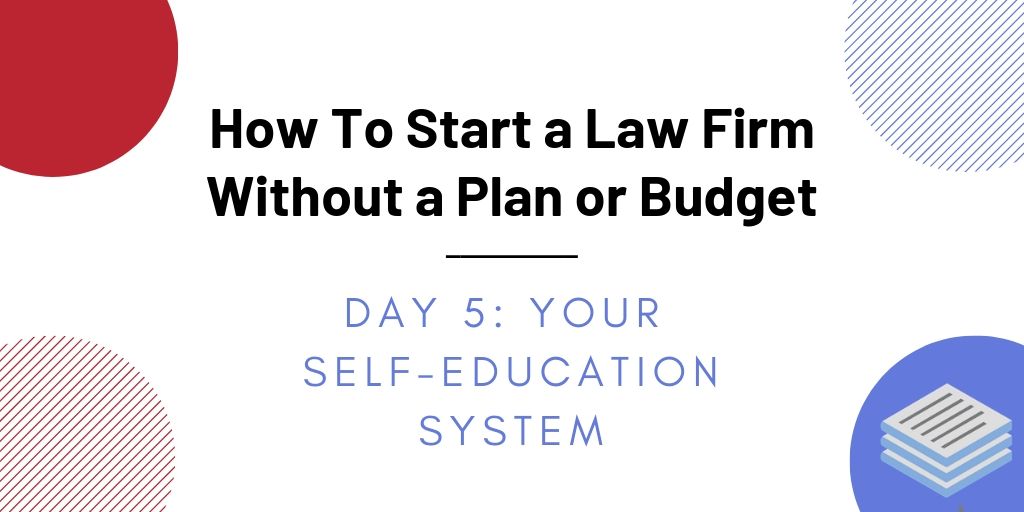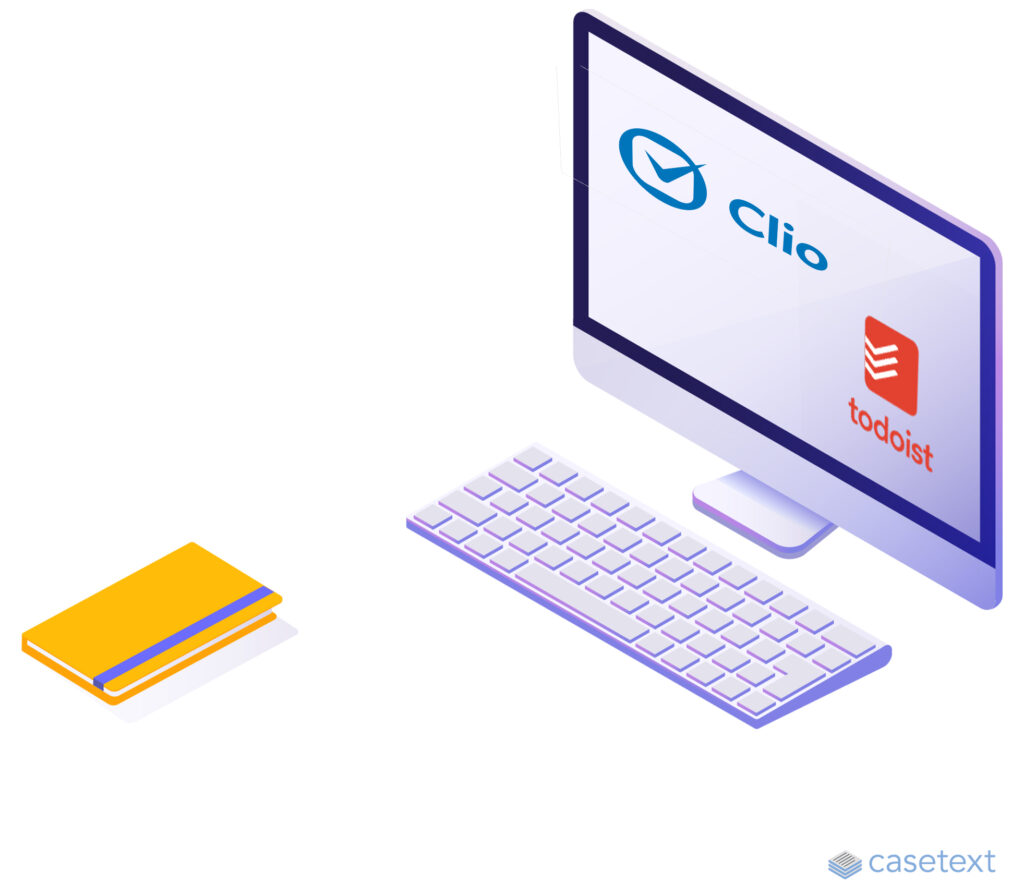
On day 2 you wrote down the gaps in your skills; today we’ll go a step further and map a plan for developing true expertise.
There’s a lot of pressure to act as if you know everything – I once had a client yell at me because I didn’t know how to fill out a DMV form (he said “But you’re a lawyer!”) – but do not give in to this temptation.
The truest sign of a mature expert practitioner is the ability to say “I don’t know.”
That said, if you never fill in those gaps in knowledge, you’ll never be able to generate the insights that clients value. So, let’s start with a systematic way to fill in the gaps. (I’m pulling this from a much more robust on knowledge management which you can find here.)
According to David C. Baker in his book The Business of Expertise, the first step to becoming a genuine expert is recognizing what you don’t know. Here’s his process:
This “Getting to Know” process helps you turn insecurity into expertise, and it creates an interesting opportunity.
Once you’ve identified the gaps in your knowledge and the content schedule that’ll force you to fill them in, connect with smart people who’ll peer-review your work. We call these professionals your “mentors.”
I’m a big believer in mentors, but you have to be creative about it.
Gone are the days when the lawyers went from the courthouse to the bar to break down cases. Senior attorneys used to sit around schooling the youngsters, who compensated them with a pint or two. Now we have looser social affiliations, and you’d probably face disciplinary action if you lush up some senior attorneys. How can you foster these crucial relationships?
Opportunities abound for mentorship. You could leverage technology, for example. I joined a few practice area-specific Facebook groups where members bounced ideas off each other. I also interacted with some really smart lawyers on Twitter. And, old school as it seems, I often took lawyers out to lunch so I could pick their brains.
However you make those personal connections, please make them. Mentorship works. You’ll need those senior pros to review your “Getting to Know” work product, so find your Obi Wan.
The other phrase you need to learn is “It’s all in the Code.” I can’t tell you how many times my experienced lawyer buddies told me that. They encouraged a rare activity as many lawyers today focus on case law and rumor. The lawyers who know the relevant primary law have a distinct advantage.
Once you determine your practice area, create a schedule for reading carefully through the relevant book of statutes. Maybe you read a page a day, or organize by subject. However you do it, make a plan. If you really get to know the code, you’ll be in elite company.
The other bit of reading that could push you to elite status can be found in your local rules. Every county is different (EVERY COUNTY IS DIFFERENT!!!) and knowing the local rules can save you some real headaches. I’ve seen a judge deny relief because some tangential piece of paper wasn’t filed two weeks before a hearing. Don’t be that lawyer. Your client won’t like you.
Here’s an unpopular thought on third party publications: you should go sparingly.
Every time you go to a CLE conference you’ll see countless booths selling the $300 guide you must have. Your insecurity will make you feel you need those books, even if all they do is restate the statute in an even more incomprehensible way.
There may be a book or two you really do need in order to practice well, but you don’t know which books make that list. Please don’t jump at the practice guides too quickly.
Directly ask several mentors which practice guide, if they could only have one, they’d buy again. They’ll probably point to one great one, and they’ll likely give you the previous year’s version to hold you over until you can afford a current edition. I spent my first six months as a lawyer following an old edition of a practice guide — and it worked beautifully. Just make sure your mentors check your work to see if you’re using old law.
Whichever sources you find, your professional education is now 100% on you. Be a lifelong learner and you’ll jet past the competition. Few lawyers master their craft because few put in the time to study. You’re better than that. Practice makes perfect, so get at it and pay attention. #winning
Develop an appreciation for mentors. Ask yourself why you should look to your betters for advice. Ask yourself how they are your betters, and understand how they are not. You need to understand that distinction.
Like any young lawyer, you have something to bring to this practice that no one has ever seen before. No one thinks like you. You have new ideas and can’t be held back by convention. Our industry is slow to grow into new dynamics, and you’re going to change that.
Today’s mental exercise is to contemplate how to balance the need for mentors with the need to go it alone. What won’t you compromise on? What innovations have you thought of that you’ll pursue, no matter the headwinds? And, when new ideas come later, how will you draw the line after seeking counsel from mentors?
Innovation happens at the edges. Crazy ideas and happy accidents gave us penicillin and the iPad. You’ll get pushback when you seek change. Sometimes you need to listen, and sometimes you don’t. Be aware of that dynamic and develop the mind muscles you’ll need to distinguish between too crazy and just crazy enough.
The world needs you to figure this balance out.
Attack life in an organized way. Trust me, the tasks are going to start overlapping. You’ll have a letter to write for your client, a bill to pay at home, medications to pick up, and a hearing to prepare for… You will quickly get lost.
I’ve spent a lot of time keeping all these things in my brain. Dumb, dumb. I practiced with a wife and four kids in tow, two of them homeschooled. I was on a charity board and had a job at church. I had other legal-adjacent business interests. I had books to read and a lawn to mow. No doubt you’ll have just as many distractions.
When you fill a bowl with too much water, stuff starts to spill out. The same will happen with your overloaded brain. That means angry clients and ethics grievances. You have to stay on top of it.
So get a task management program. You can do this for your practice (I used Clio) and/or for your personal life (I used Todoist, which has a free version). Several of these programs are free and some are more robust than others. The law firm stuff usually focuses on contact and project management while the personal stuff is usually task-directed. Pick what works.

Don’t get in the habit of keeping it all in your head. Trust me. That’s the quickest path to a bad Yelp review from an angry client. Get a solution.
Go on to the next chapter: Ethics Can Kill
Or, go back to the Table of Contents
Rapidly draft common legal letters and emails.
How this skill works
Specify the recipient, topic, and tone of the correspondence you want.
CoCounsel will produce a draft.
Chat back and forth with CoCounsel to edit the draft.
Get answers to your research questions, with explanations and supporting sources.
How this skill works
Enter a question or issue, along with relevant facts such as jurisdiction, area of law, etc.
CoCounsel will retrieve relevant legal resources and provide an answer with explanation and supporting sources.
Behind the scenes, Conduct Research generates multiple queries using keyword search, terms and connectors, boolean, and Parallel Search to identify the on-point case law, statutes, and regulations, reads and analyzes the search results, and outputs a summary of its findings (i.e. an answer to the question), along with the supporting sources and applicable excerpts.
Get answers to your research questions, with explanations and supporting sources.
How this skill works
Enter a question or issue, along with relevant facts such as jurisdiction, area of law, etc.
CoCounsel will retrieve relevant legal resources and provide an answer with explanation and supporting sources.
Behind the scenes, Conduct Research generates multiple queries using keyword search, terms and connectors, boolean, and Parallel Search to identify the on-point case law, statutes, and regulations, reads and analyzes the search results, and outputs a summary of its findings (i.e. an answer to the question), along with the supporting sources and applicable excerpts.
Get a thorough deposition outline in no time, just by describing the deponent and what’s at issue.
How this skill works
Describe the deponent and what’s at issue in the case, and CoCounsel identifies multiple highly relevant topics to address in the deposition and drafts questions for each topic.
Refine topics by including specific areas of interest and get a thorough deposition outline.
Ask questions of contracts that are analyzed in a line-by-line review
How this skill works
Allows the user to upload a set of contracts and a set of questions
This skill will provide an answer to those questions for each contract, or, if the question is not relevant to the contract, provide that information as well
Upload up to 10 contracts at once
Ask up to 10 questions of each contract
Relevant results will hyperlink to identified passages in the corresponding contract
Get a list of all parts of a set of contracts that don’t comply with a set of policies.
How this skill works
Upload a set of contracts and then describe a policy or set of policies that the contracts should comply with, e.g. "contracts must contain a right to injunctive relief, not merely the right to seek injunctive relief."
CoCounsel will review your contracts and identify any contractual clauses relevant to the policy or policies you specified.
If there is any conflict between a contractual clause and a policy you described, CoCounsel will recommend a revised clause that complies with the relevant policy. It will also identify the risks presented by a clause that does not conform to the policy you described.
Get an overview of any document in straightforward, everyday language.
How this skill works
Upload a document–e.g. a legal memorandum, judicial opinion, or contract.
CoCounsel will summarize the document using everyday terminology.
Find all instances of relevant information in a database of documents.
How this skill works
Select a database and describe what you're looking for in detail, such as templates and precedents to use as a starting point for drafting documents, or specific clauses and provisions you'd like to include in new documents you're working on.
CoCounsel identifies and delivers every instance of what you're searching for, citing sources in the database for each instance.
Behind the scenes, CoCounsel generates multiple queries using keyword search, terms and connectors, boolean, and Parallel Search to identifiy the on-point passages from every document in the database, reads and analyzes the search results, and outputs a summary of its findings (i.e. an answer to the question), citing applicable excerpts in specific documents.
Get a list of all parts of a set of contracts that don’t comply with a set of policies.
Ask questions of contracts that are analyzed in a line-by-line review
Get a thorough deposition outline by describing the deponent and what’s at issue.
Get answers to your research questions, with explanations and supporting sources.